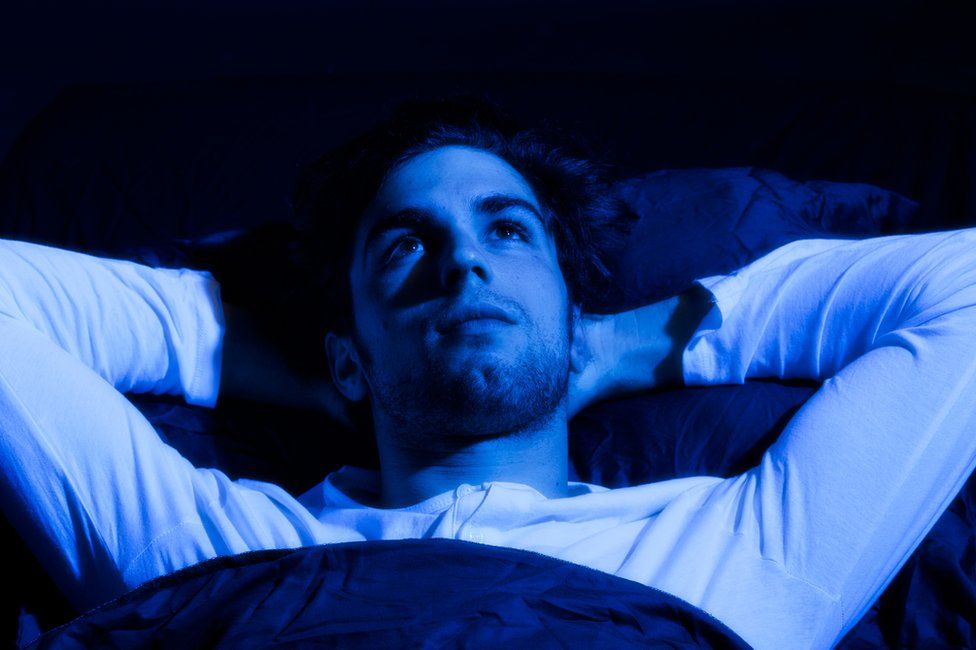
Sleep disturbances are a common reaction to all natural disasters - from floods to epidemics, writes John Wright of Bradford Royal Infirmary, and the Covid pandemic is no exception.
When I started this diary just over a year ago the virus was hurtling towards us from distant shores and my clinical colleagues were waking up in the middle of the night worrying about the brewing storm. When the hospital began filling with acutely ill patients, the insomnia stemmed from worries about individual patients and mental checklists for the day ahead.
As lockdown began, this insomnia spread rapidly to the rest of the population. In national surveys in the UK and Italy, the majority of people reported problems sleeping. The world was lying awake staring at the ceiling. Isolation and confinement from the lockdown, the breakdown of our normal routines, anxiety about catching the infection, and stress from job and economic insecurity all contribute to our nocturnal restlessness.
People with sleep problems before the pandemic have experienced a worsening of symptoms, and those who were good sleepers have started to experience insomnia. Sleep doctors have come up with the label of Covid-somnia or coronasomnia to describe the variety of sleep disorders, not just in patients but in the whole population.
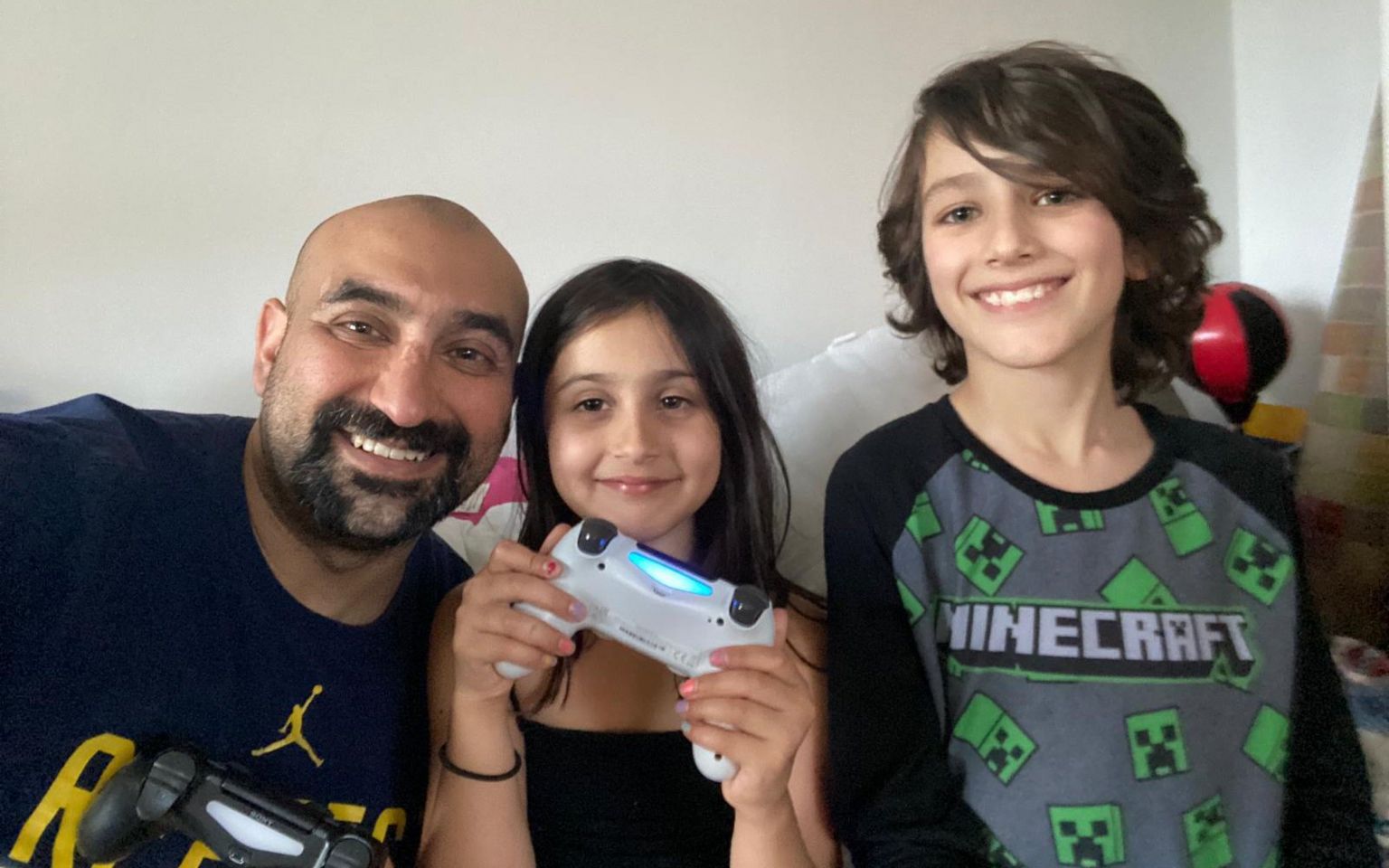
Many viral infections cause fatigue and drowsiness and Covid does too. This is a virus that clearly affects our nervous system - from our olfactory and facial nerves, causing loss of smell and taste, through to the long Covid legacy symptoms of headaches and brain fog. It is quite plausible that it has a long-lasting impact on our brain's sleep patterns.
I still have some minor long Covid symptoms: dysgeusia - strange tastes of metal and soap when I eat - and parosmia that alters my smell. I am perhaps a bit more forgetful, but this is difficult to disentangle from normal ageing and overwork. Most annoyingly, my sleep has become markedly disrupted - repeated awakenings with tossing and turning as I wait to drop off again.
Sam Khan, Bradford Royal Infirmary's clinical director of urgent care, has had it much worse. He got Covid on 24 March 2020, right at the start of the UK lockdown, and was then off work for five months with long Covid. He still feels breathless and tired, and still can't focus on things properly. He used to be good at analysing information and making rapid decisions, as doctors have to on a busy ward round, but now it's a challenge.
Probably the majority of people we see, if they have any effect from the vaccine ,it seems to be a positive one
Interestingly, since Sam had the vaccine in December, his sleep has deteriorated - though there is no evidence of a causal link.
"At the end of the first week I suddenly realised I was waking up, bang, at 3am - and I'm a solid sleeper but that all changed. Now I go to bed at nine o'clock and wake up at 3am, and go to bed at 10 o'clock and wake up at 3am, and then I'd try going to bed at midnight, but would still wake up at 3am," he says.
Then it takes him an hour and a half to get back to sleep.
He's started taking anti-histamine, a mild sedative, before going to bed.
"But if I forget to take the anti-histamine, then without fail it's bang, I wake up at 3am. It's bizarre."

Front-line diary
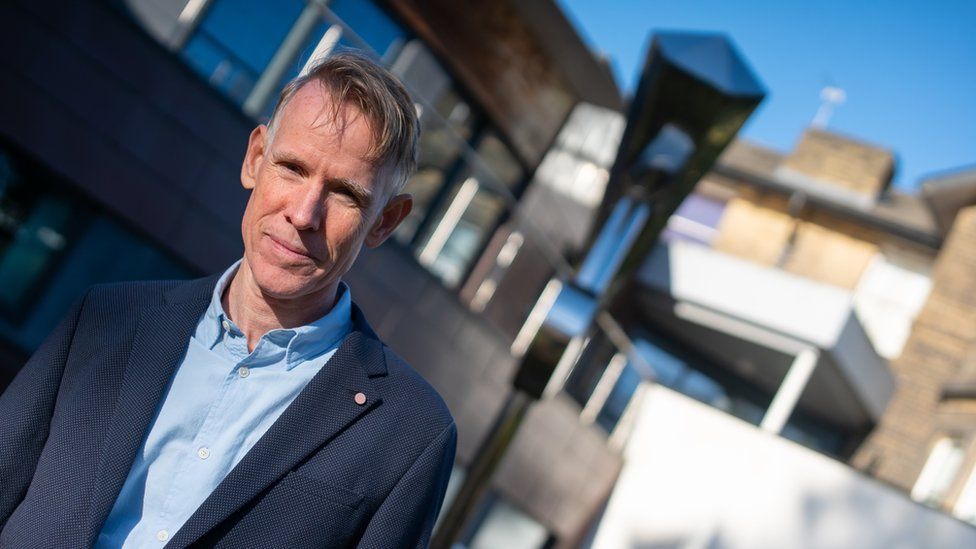
Prof John Wright, a doctor and epidemiologist, is head of the Bradford Institute for Health Research, and a veteran of cholera, HIV and Ebola epidemics in sub-Saharan Africa. He is writing this diary for BBC News and recording from the hospital wards for BBC Radio.
- Listen to A Year on the NHS Front Line
- Or read the previous online diary entry: Has Covid changed hospitals for the better?
- Find all the diary entries on the BBC Radio 4 website

Tina Mori, a matron in the newborn unit, says she used to feel fine on five or six hours' sleep a night, but Covid sent her sleep "all over the place". Recently, like Sam, she started sleeping even worse.
"Last night I had a really rough night, not sleeping and desperate to sleep," she says. "I'm sleeping for very short periods now and struggling to get back to sleep and it's like a continuous cycle."
Dr Paul Whitaker, who runs our long Covid clinic, says that patients with long-term symptoms may have difficulty sleeping - or on the other hand they may sleep excessively (up to 17 hours a day) because they are so tired. Or it can be a combination of both problems - they sleep during the day and therefore have problems sleeping at night.
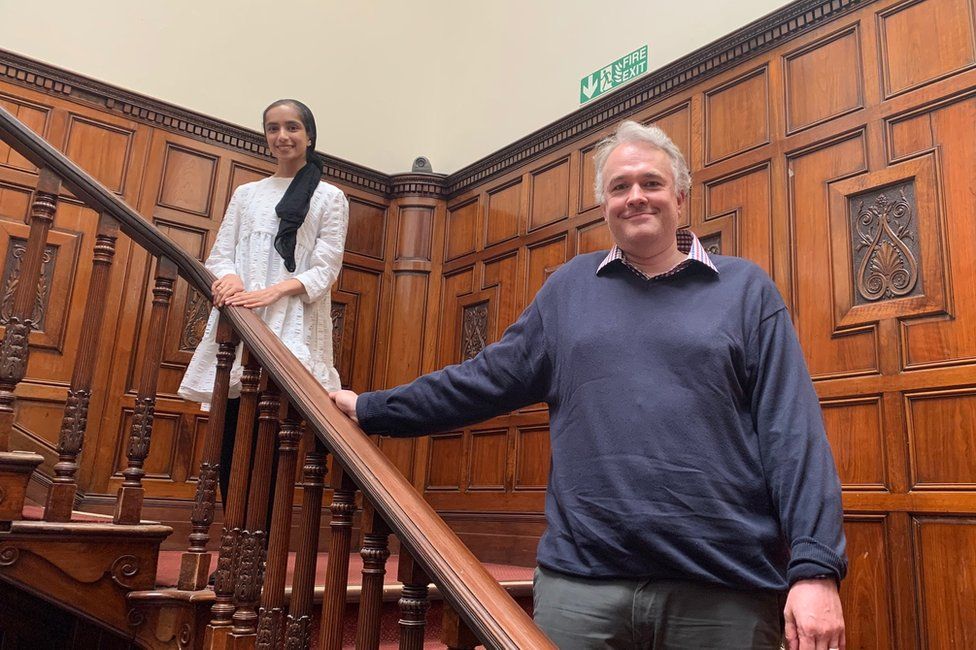
Sometimes mental health problems are a factor hindering sleep, or breathlessness, or - particularly in the case of people who were in intensive care - nightmares.
Paul's experience suggests that the vaccine sometimes brings an improvement in these symptoms - even if in Sam and Tina's case the opposite appeared to happen.
"Probably the majority of people we see, if they have any effect from the vaccine, it seems to be a positive one. A proportion of people do feel better after the vaccine - and that tends to be everything improving," he says.
In other cases the body appears to heal by itself, eventually.
"I was talking to a patient the other week who was quite young - these long Covid patients are hitting a year anniversary and it's been a year for her - and finally she's sleeping properly and the brain fog is lifting, so recovery does happen in time," Paul says.
Some readers of this diary may remember Mohammed Azeem, whose oxygen levels dropped more than once to a point his consultant described as "incompatible with life", and who spent 48 days in a coma in ICU.
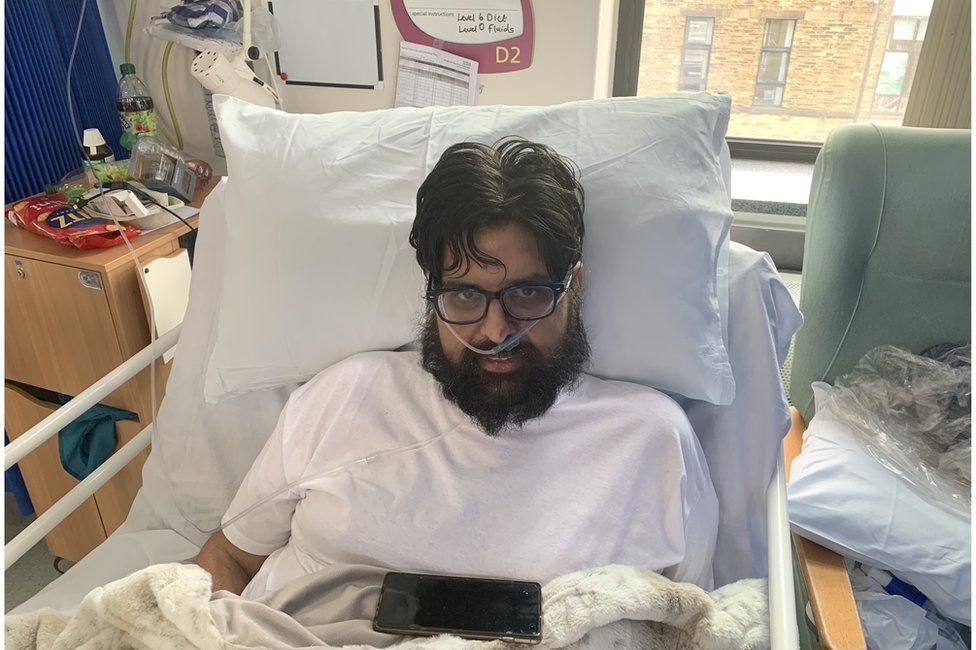
He says his whole pattern of sleep changed after Covid. He also began to be plagued by nightmares. He has seen a psychiatrist and been prescribed sleeping pills, but he is hoping that the end of lockdown will also help.
"Hopefully when lockdown is over I can start walking around more," he says. "Being outdoors more will help tire me,"
Sleep is such an important part of our physical and mental health. It is a time of recuperation when our body repairs itself and the mind processes the barrage of stimuli from the daytime.
Sleep also appears to be important for our immune systems, and a good night's sleep may help maximise our immune responses to vaccines.
Follow @docjohnwright, radio producer @SueM1tchell on Twitter
"diary" - Google News
April 05, 2021 at 06:12AM
https://ift.tt/3cQdWcM
Coronavirus doctor's diary: How the virus has changed our sleep patterns - BBC News
"diary" - Google News
https://ift.tt/2VTijey
https://ift.tt/2xwebYA
Bagikan Berita Ini














0 Response to "Coronavirus doctor's diary: How the virus has changed our sleep patterns - BBC News"
Post a Comment